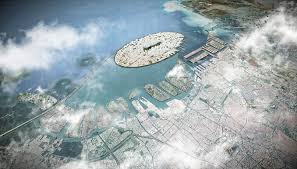Jakarta: A Deep Dive into Indonesia’s Thriving Capital City

Introduction
Jakarta, the capital city of Indonesia, is a bustling metropolis that plays a pivotal role in Southeast Asia. As the largest city in the country, Jakarta is not just the political and economic centre but also a melting pot of cultures, languages, and traditions. In recent years, Jakarta has witnessed rapid urban development and an increase in global significance, making it essential to understand its dynamics in today’s interconnected world.
Current Events and Urban Development
In 2023, Jakarta has been in the news for its comprehensive measures to mitigate the impact of traffic congestion, which has plagued the city for years. Local authorities have initiated the construction of several new public transport projects, including the expansion of the Jakarta MRT and LRT systems. These improvements aim to enhance connectivity and reduce reliance on cars, which are contributing to severe air pollution.
Moreover, Jakarta is also in the spotlight due to ongoing discussions about relocating the capital to East Kalimantan, amid concerns over flooding, traffic, and pollution in the city. President Joko Widodo has been advocating this major shift, considering it a necessary move to relieve Jakarta’s burdens while promoting development in other regions. The proposed site for the new capital, Nusantara, is intended to be not only a new governmental headquarters but also a sustainable city.
Culture and Economy
Jakarta is a city that reflects Indonesia’s rich heritage. The blend of indigenous cultures, colonial influences, and modern developments offers a unique cultural tapestry. Tourists flock to historical landmarks such as the National Monument (Monas) and the Thousand Islands, while the city’s vibrant markets and street food scenes further enhance its allure.
The city’s economy is one of the fastest-growing in Asia, driven by sectors like manufacturing, trade, and finance. Despite the challenges posed by the COVID-19 pandemic, Jakarta’s economic foundations have shown resilience. With international investments on the rise, the city is expected to recover and continue to thrive.
Conclusion
As Jakarta evolves, it stands at the crossroads of tradition and modernity. The discussions surrounding its infrastructure, environmental challenges, and capital relocation will shape the future of not only the city but also Indonesia as a whole. For residents and visitors alike, Jakarta remains a dynamic destination, pulsing with energy and possibility. The ongoing efforts to improve urban living conditions and promote sustainable development are essential for the future prosperity of this remarkable city.









